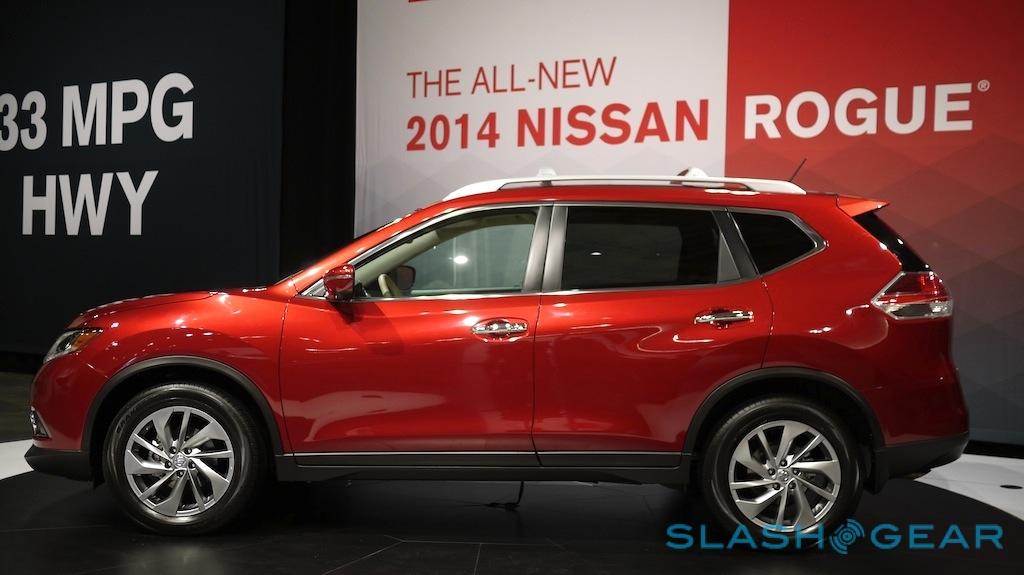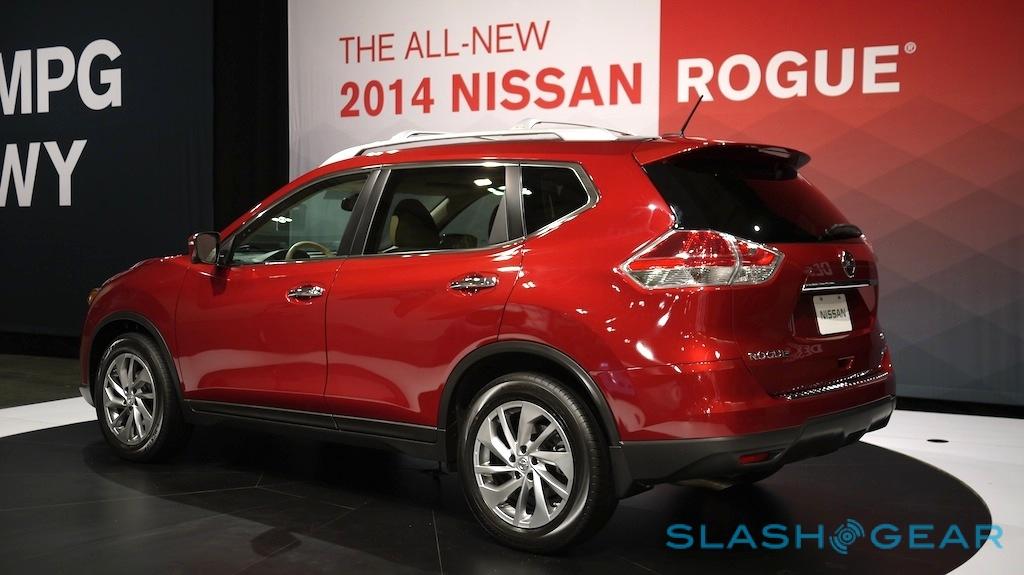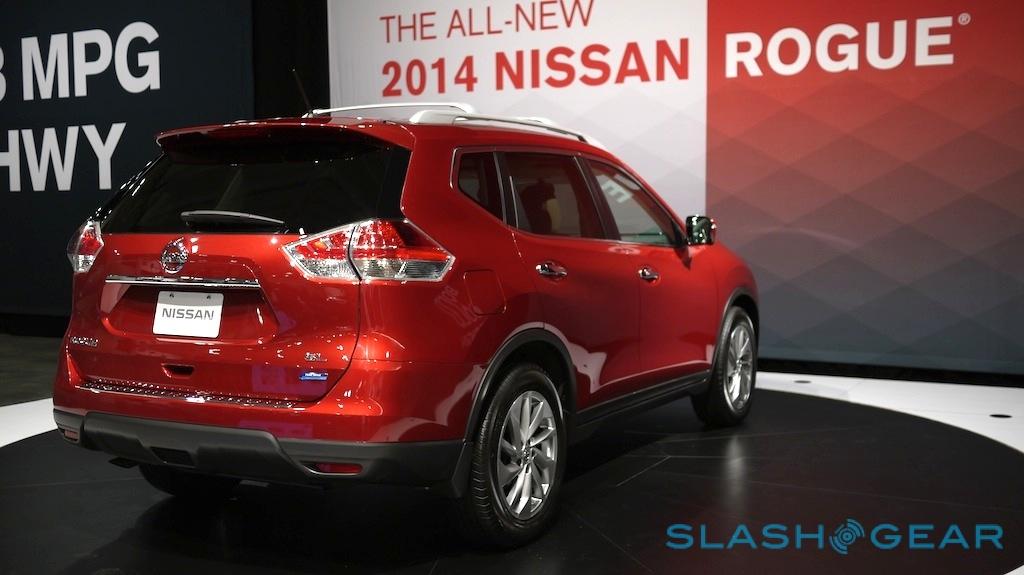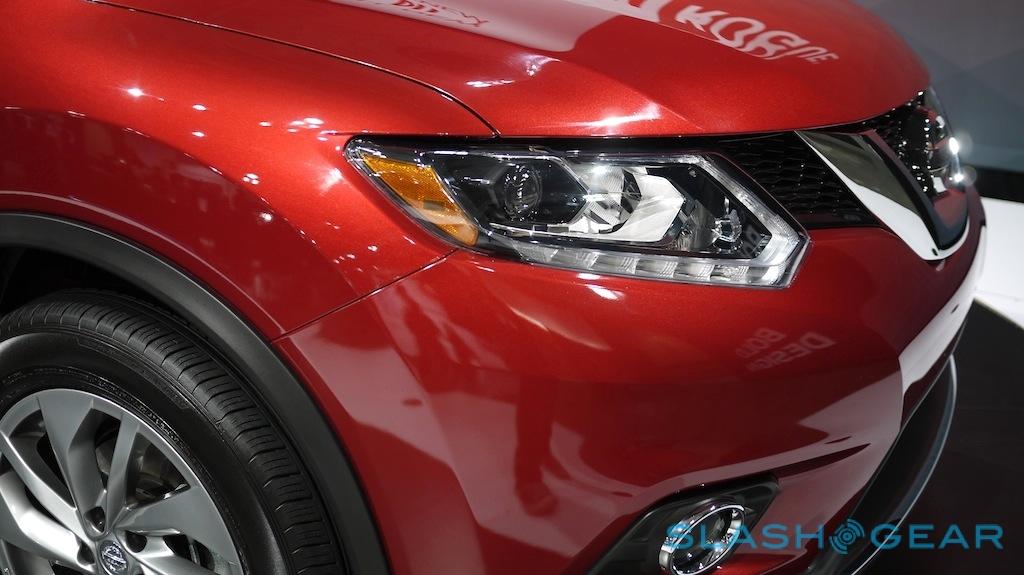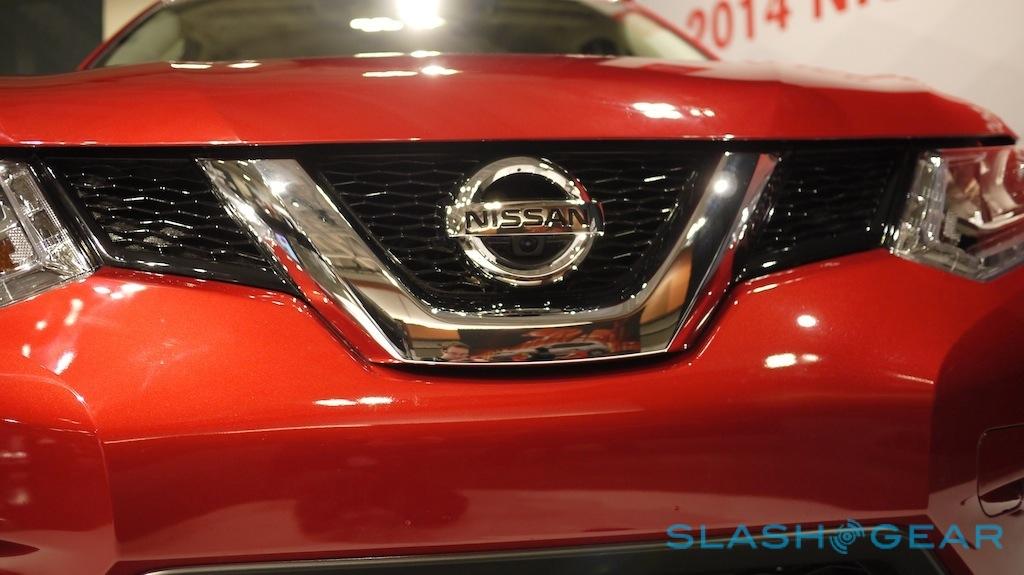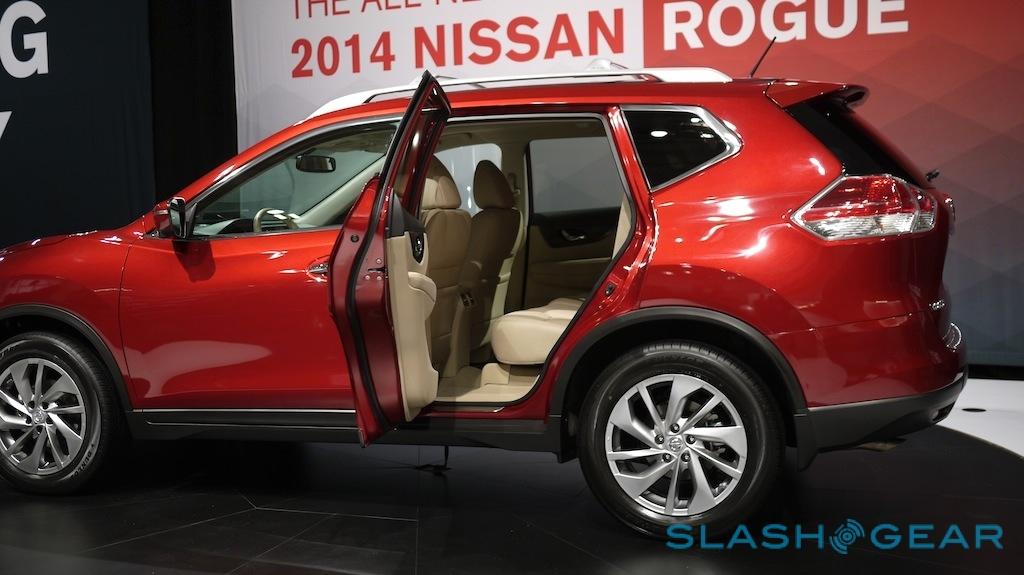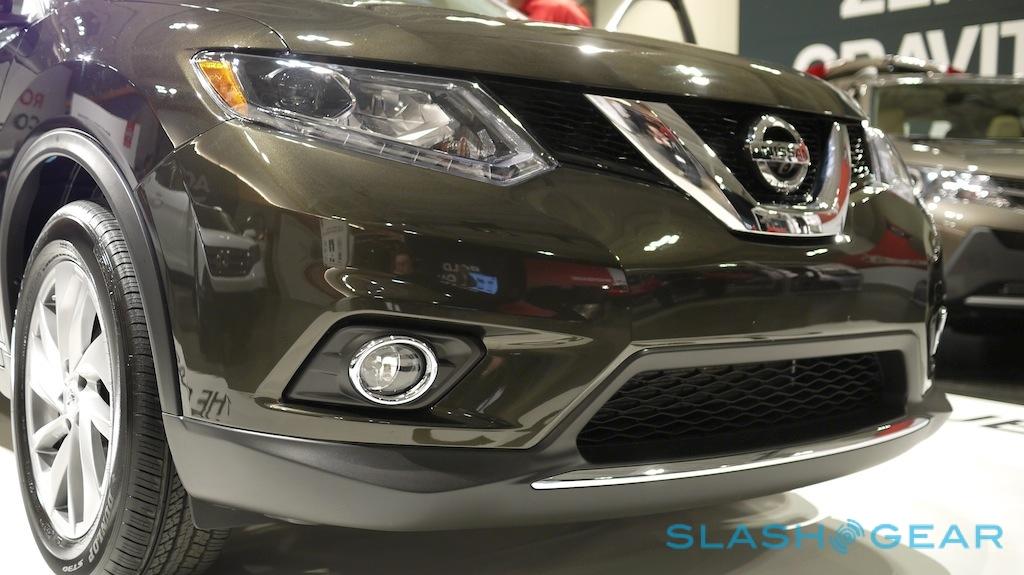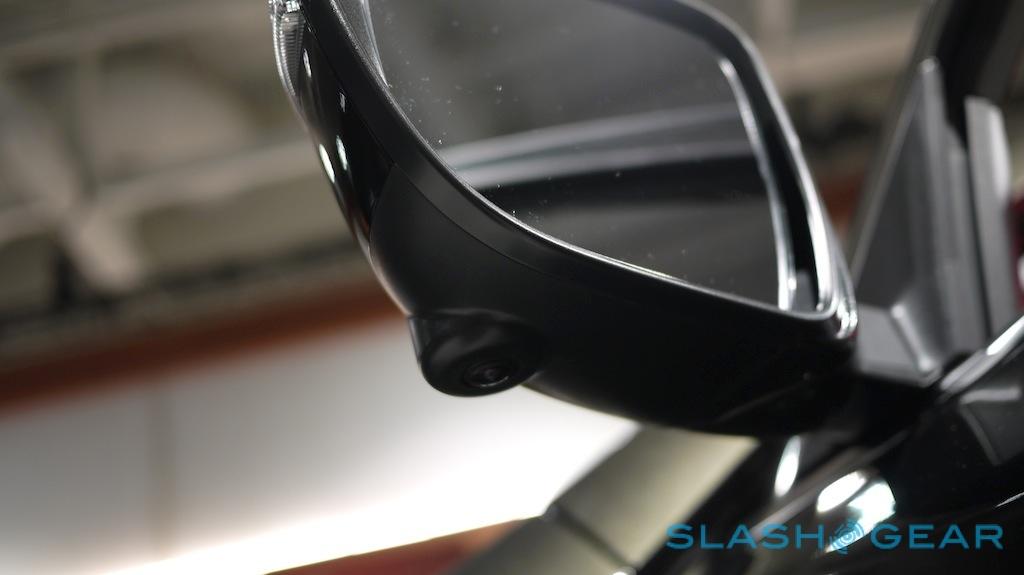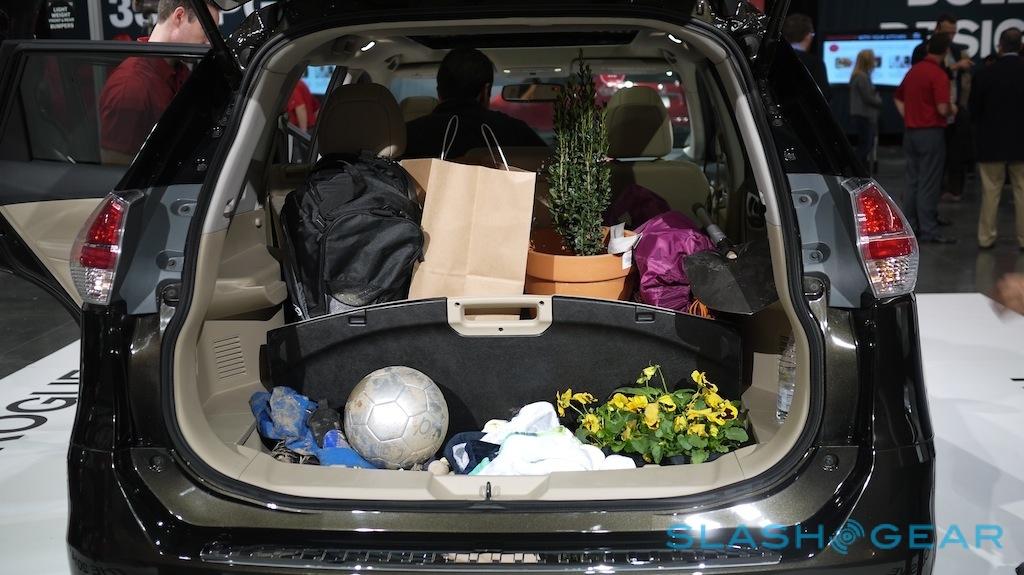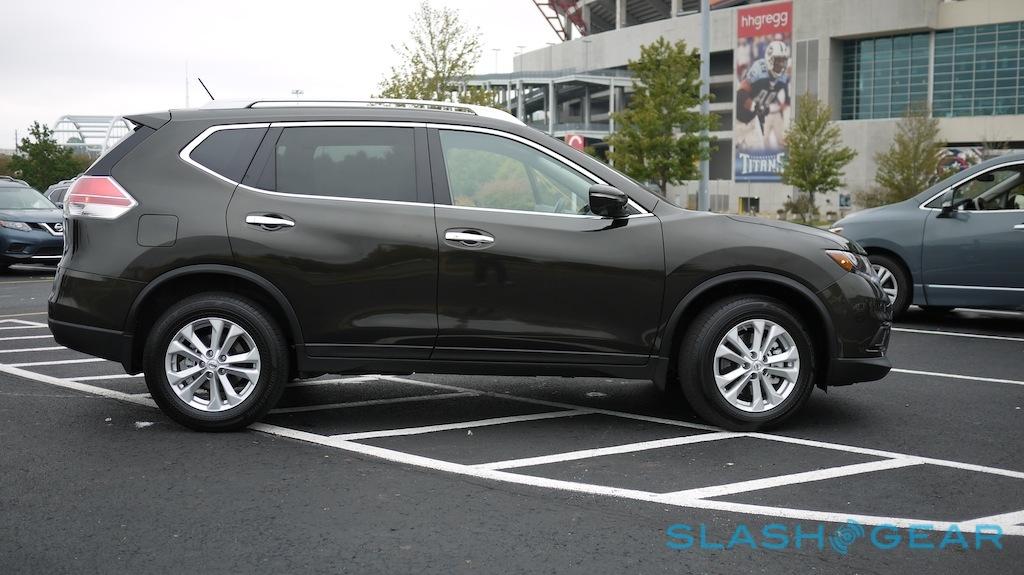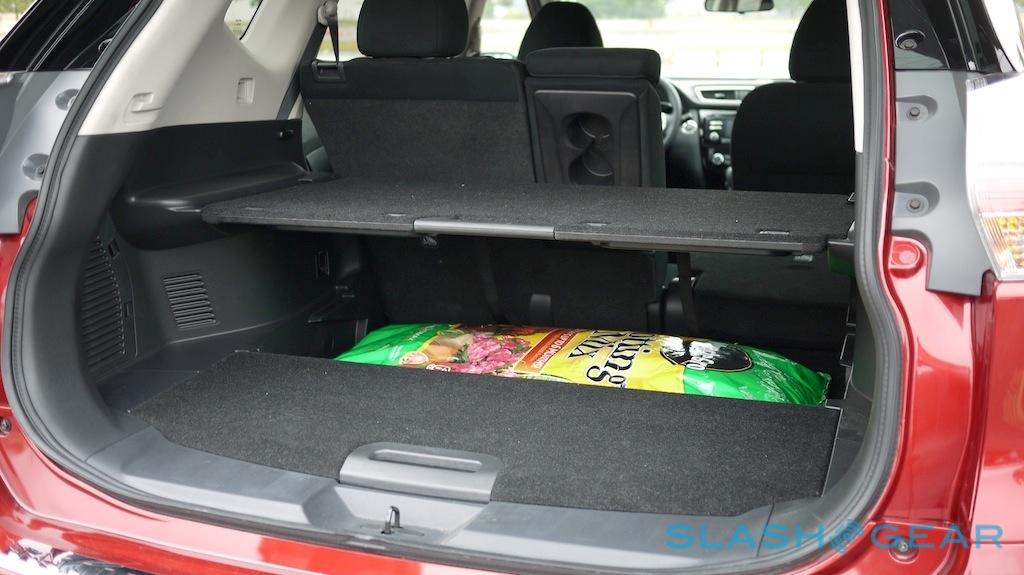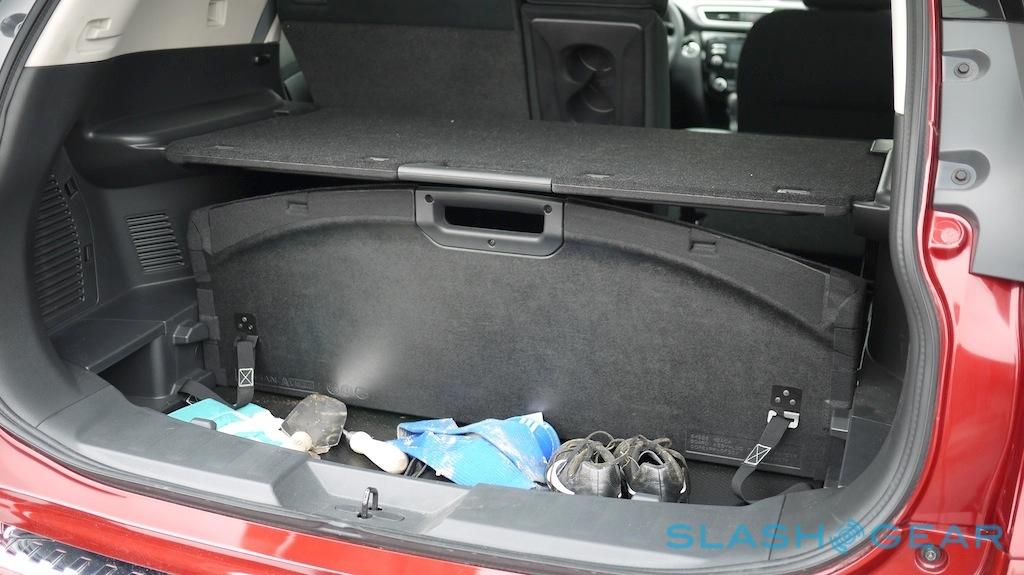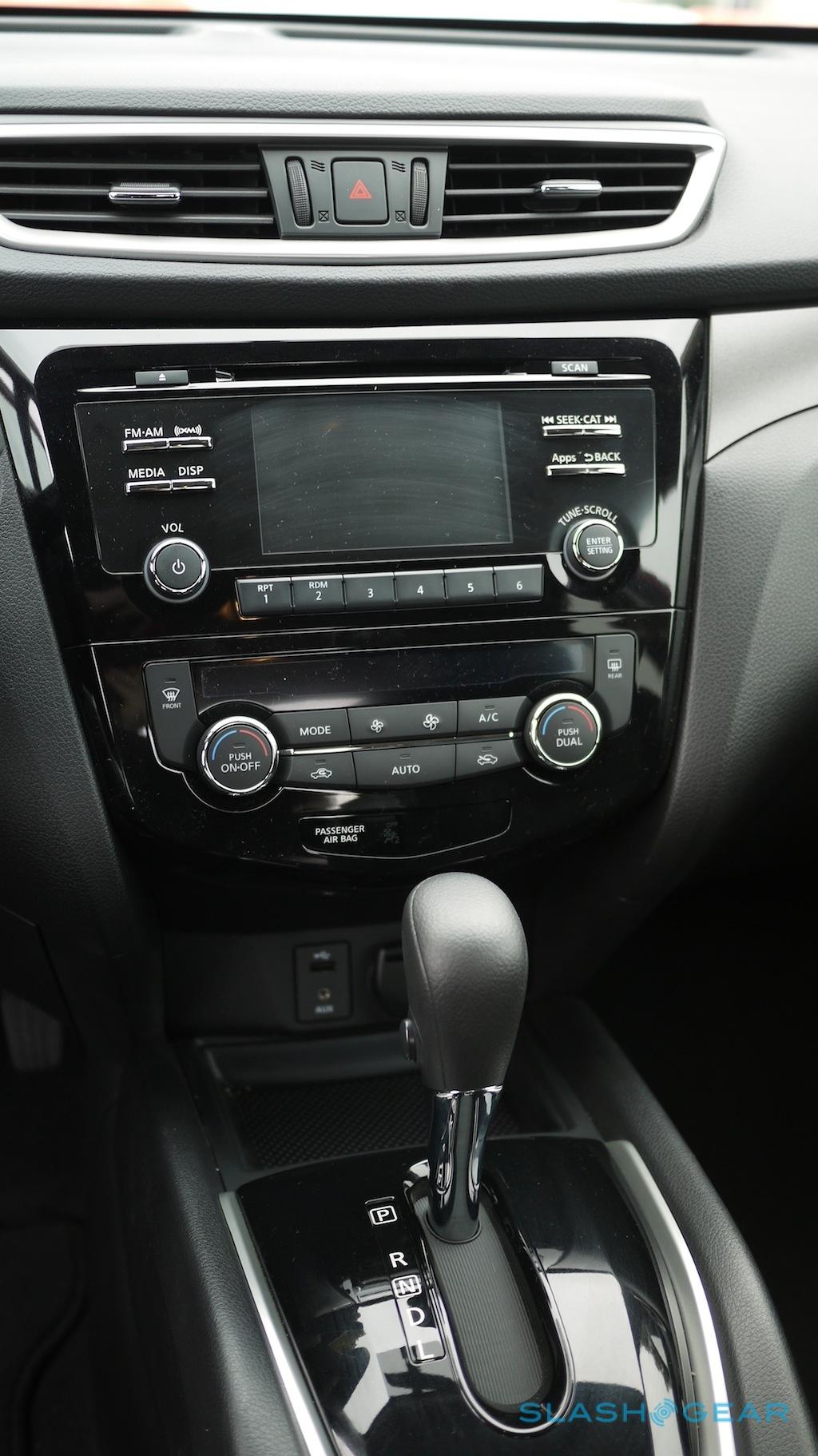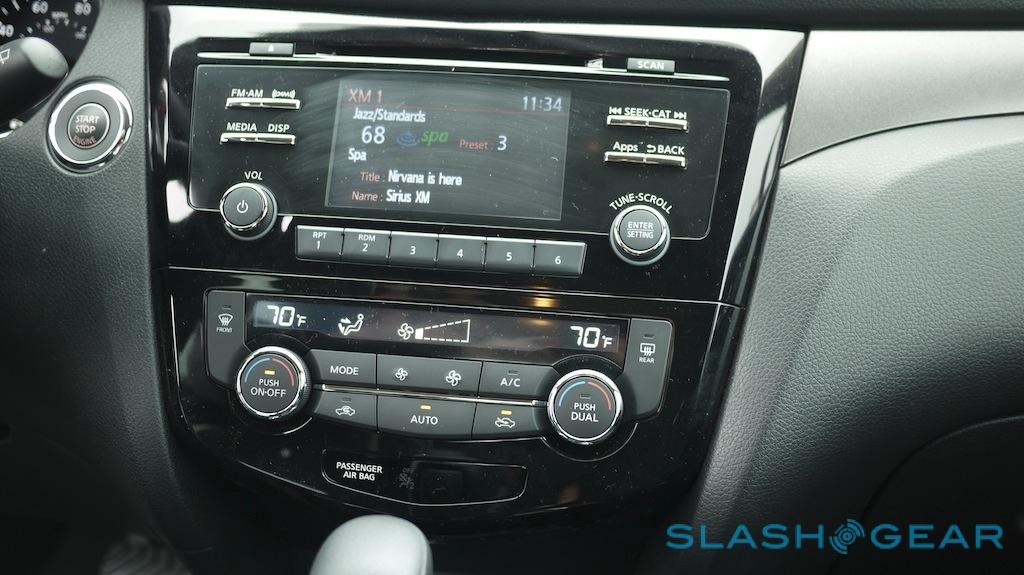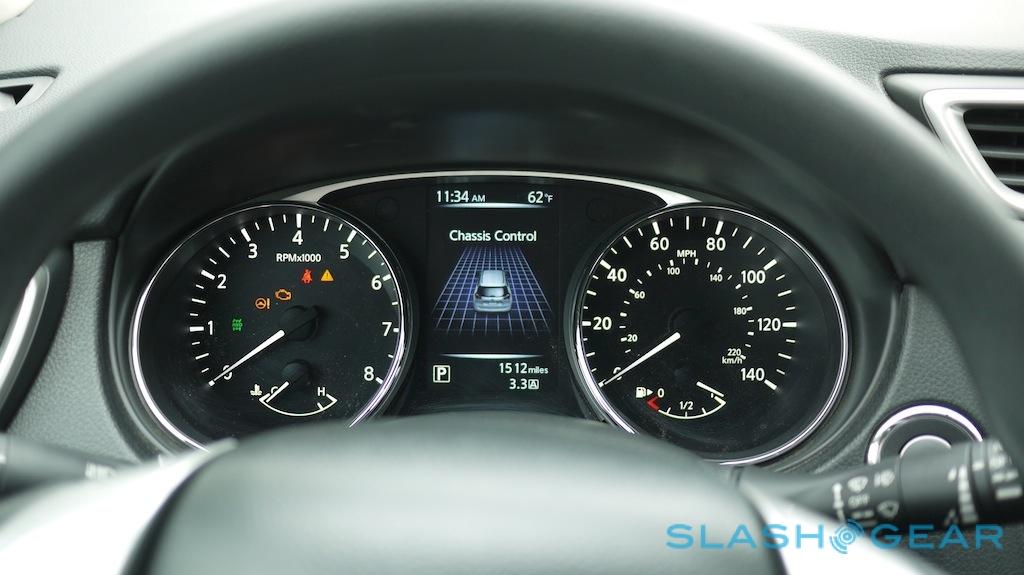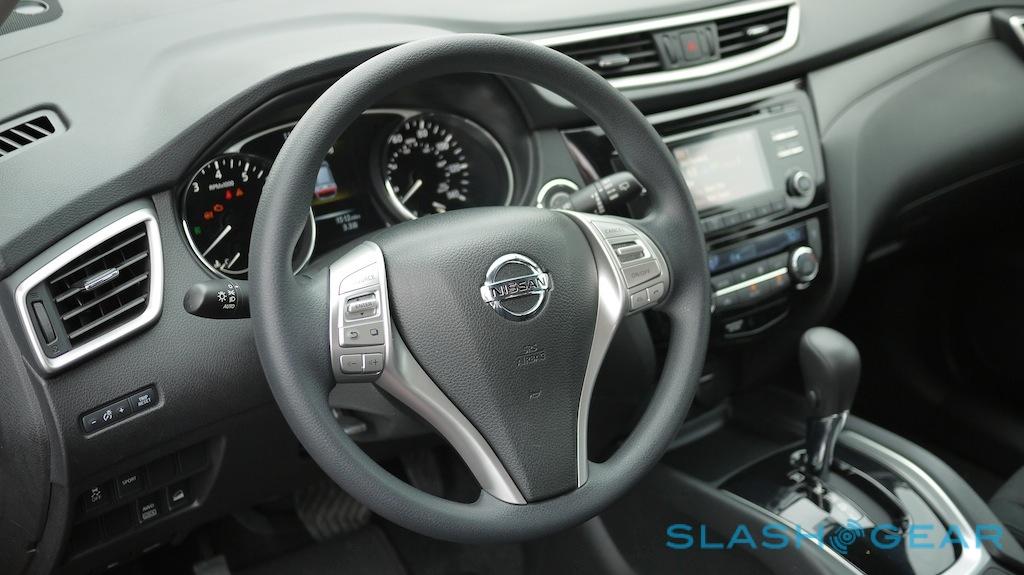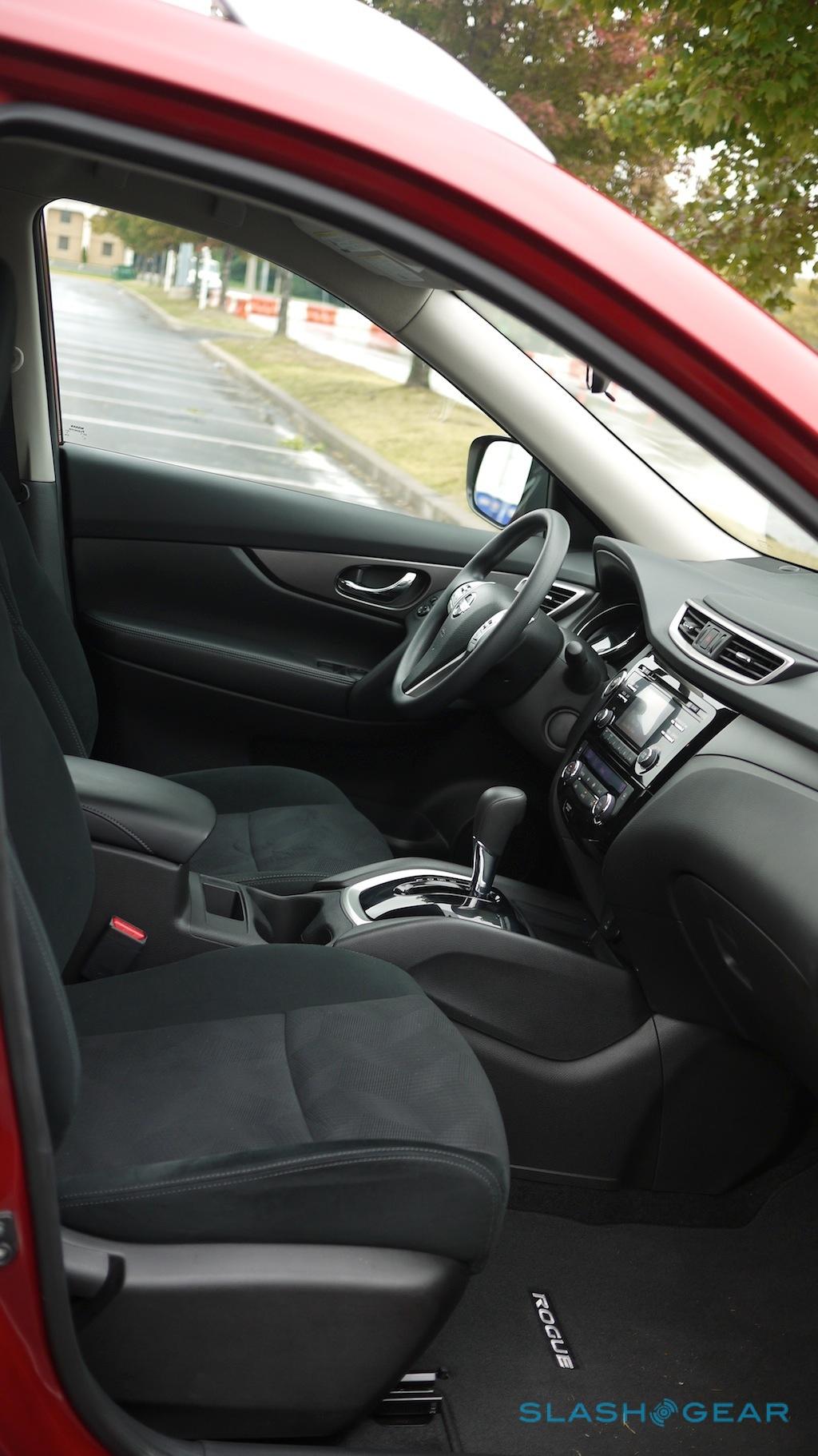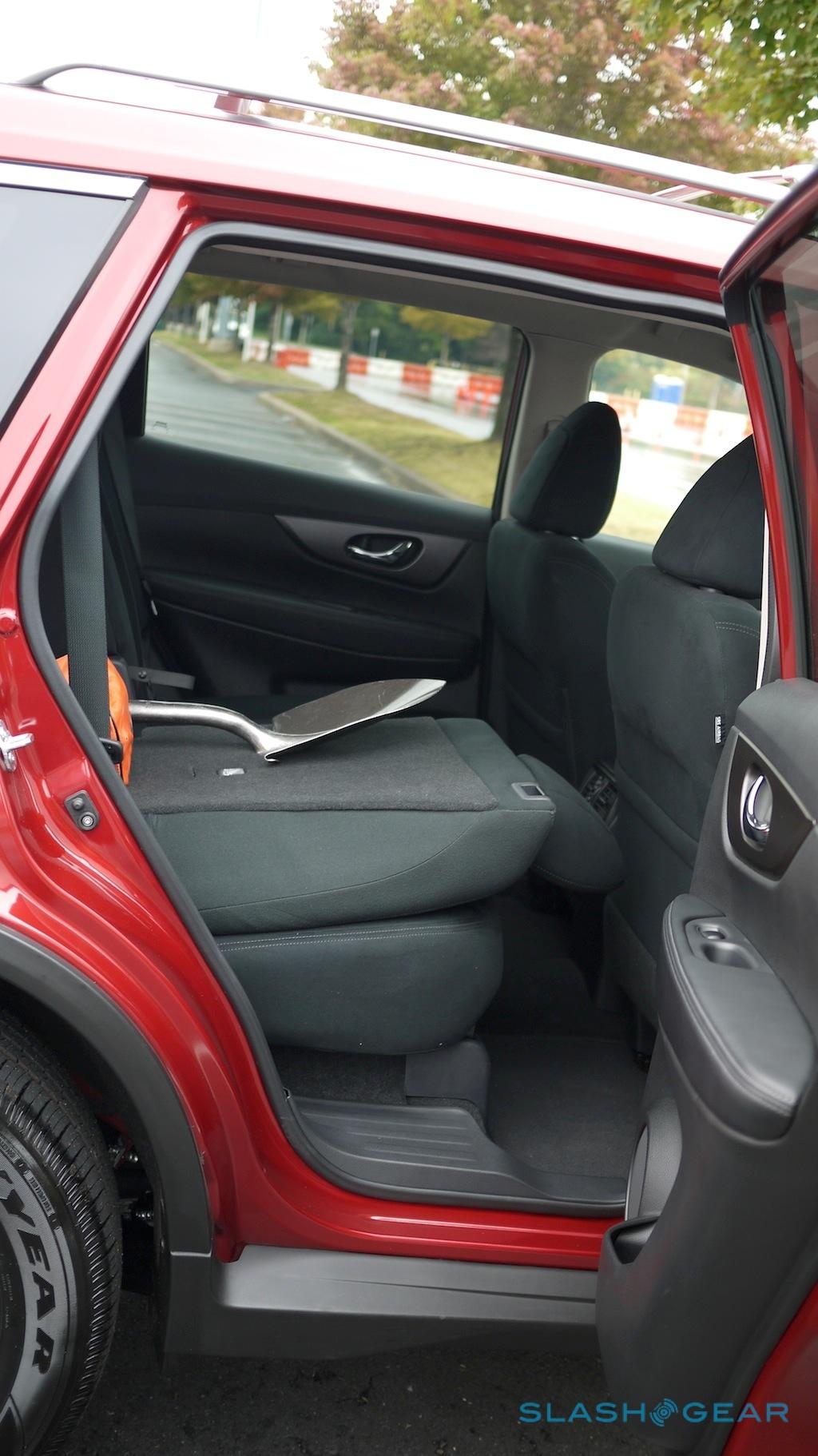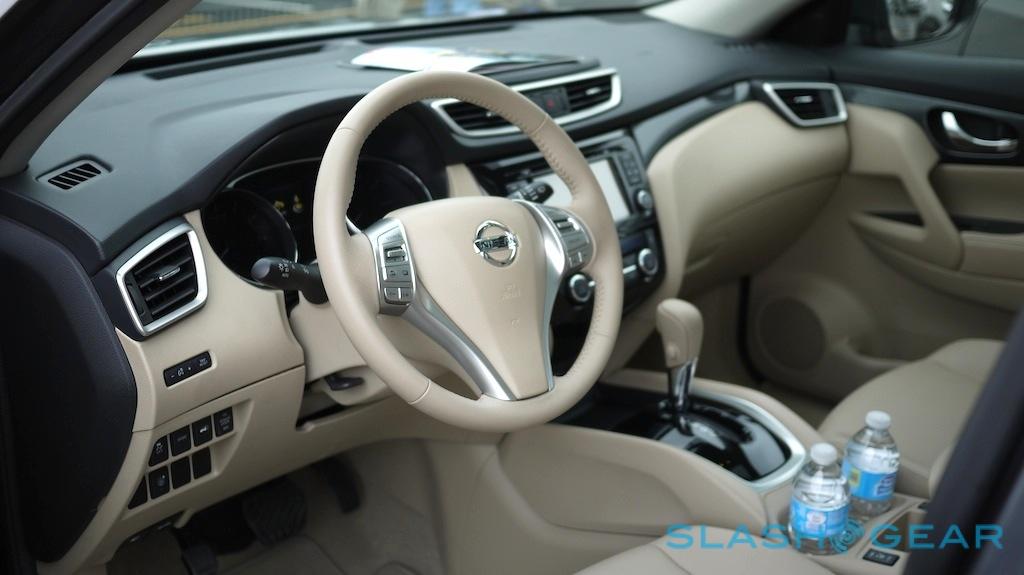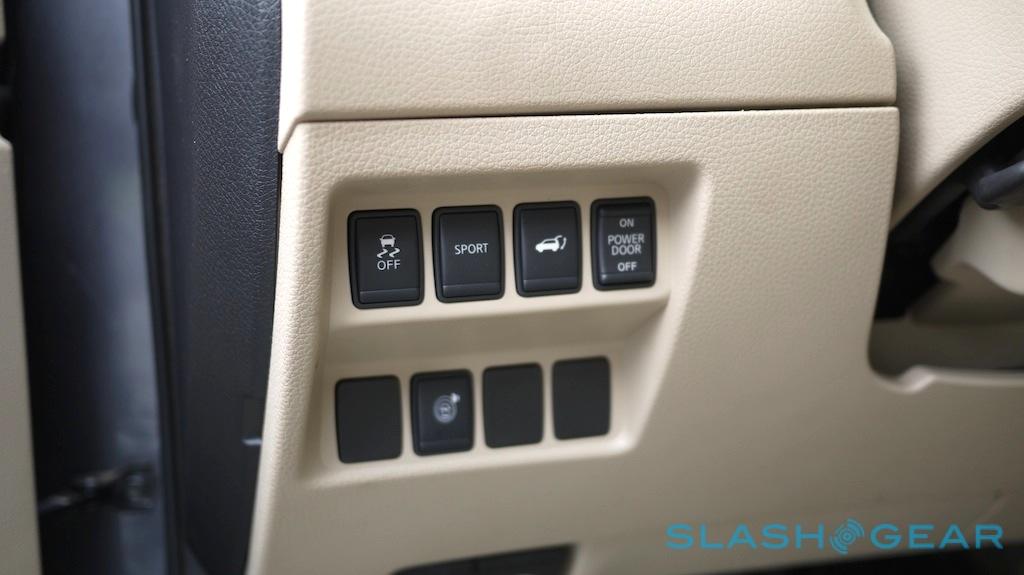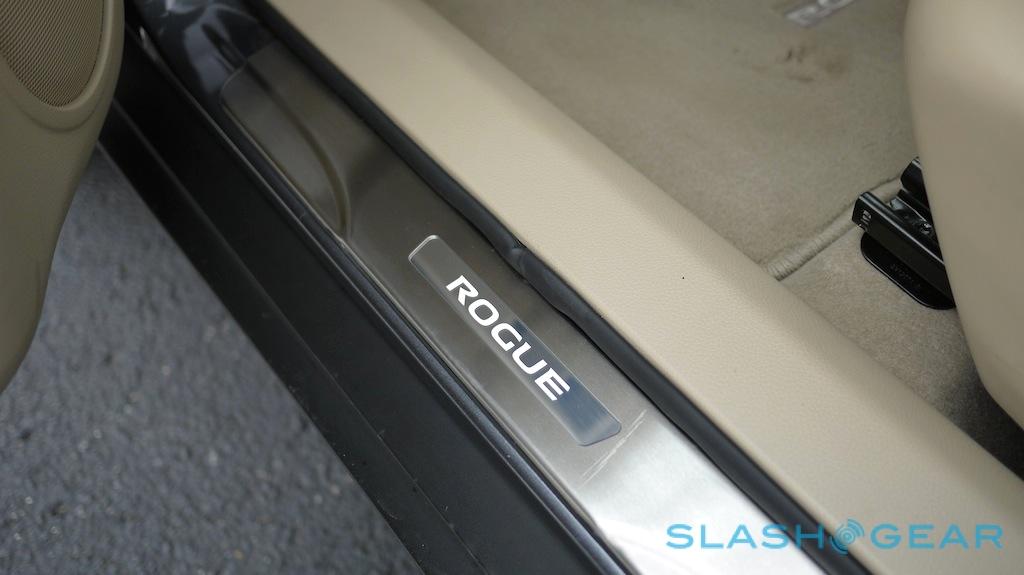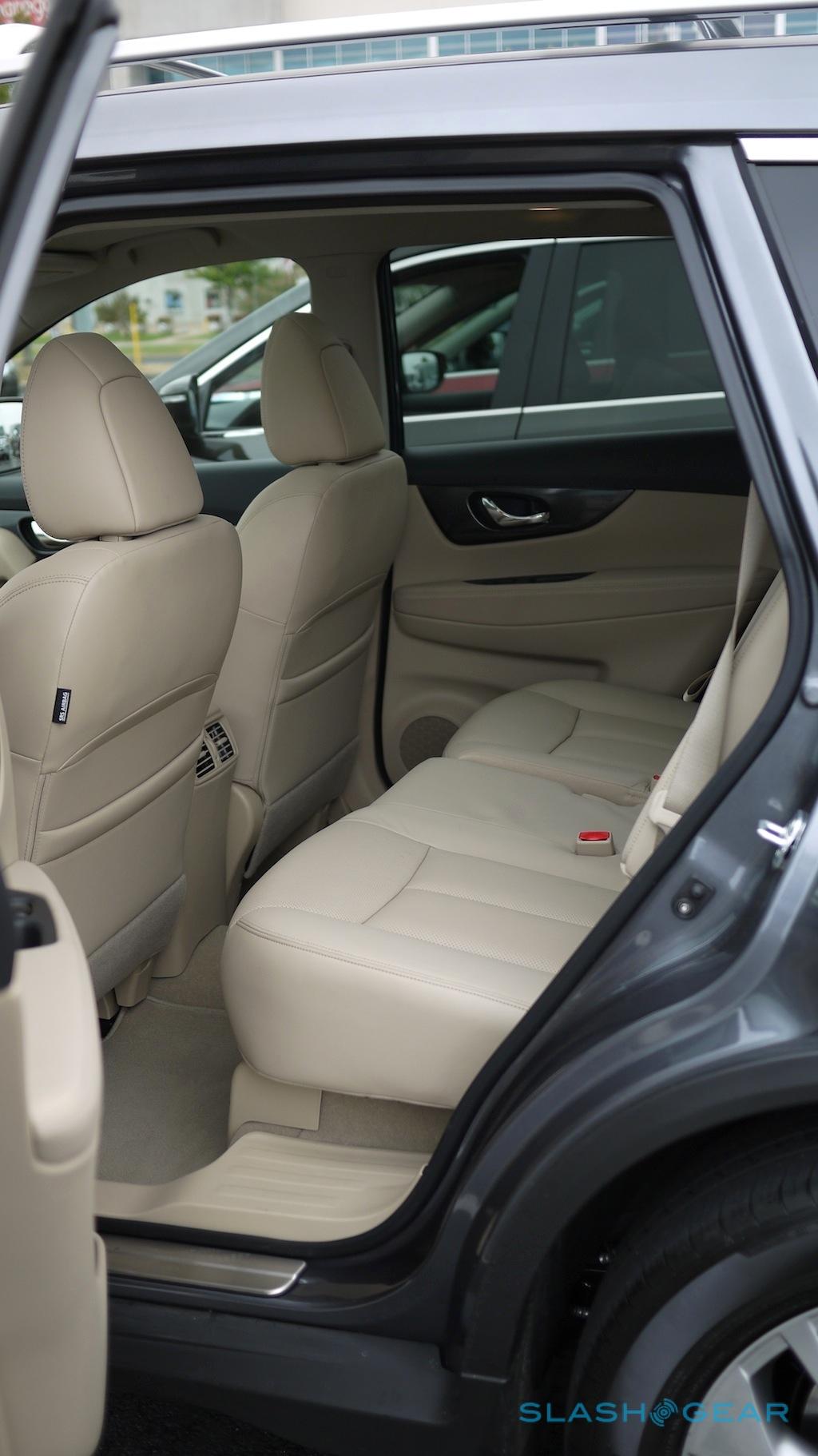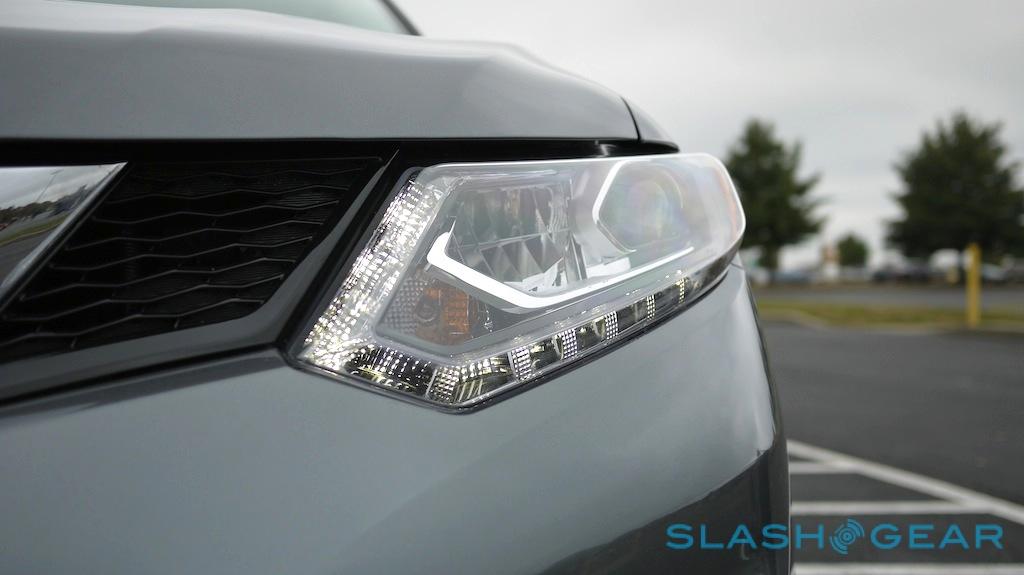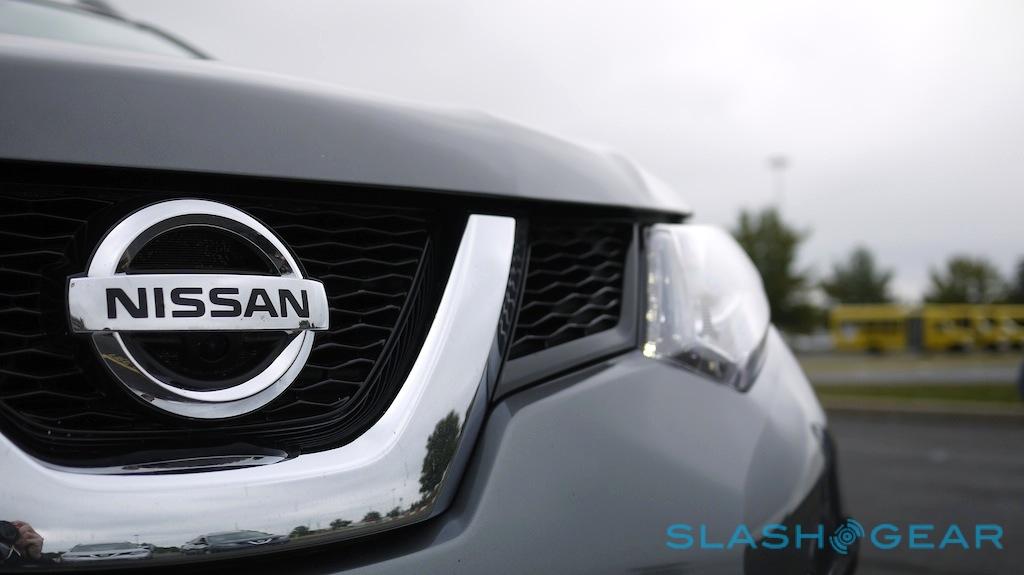2014 Nissan Rogue First-Drive
You might not guess it, but Nissan's Rogue is the second most popular model in the company's range when it comes to US sales, and that means there's plenty riding on the 2014 Rogue. Bigger, and promising more refinement, more flexibility, and more toys as standard, the new Rogue will hit forecourts from November 13th priced from $22,490, with both front-wheel drive and all-wheel drive versions and optional third-row seating. We grabbed some time behind the wheel to see if this is the compact crossover SUV to beat.
Though it's recognizably a Nissan from the outside – the company's designers say their keywords are "biokinetic synchronicity", which basically means plenty of taut surfaces, flowing angles abutting against each other, and strong crease lines across the shoulders and hood of the car – the 2014 Rogue is particularly special underneath. It's the first Nissan to use the Common Module Family (CMF) architecture designed with Renault, itself the culmination of an engineering partnership begun all the way back in 1999.
The CMF means more modularity and fewer unique components across the various Nissan and Renault ranges, as well as increased purchasing power and less required manpower to build new models. Given the importance of the Rogue to Nissan's position in the US market, however, there's been plenty of involvement of the North American team in the tuning of the Japanese-French architecture, and in fact not only is the 2014 Rogue made in Nissan's Smyrna plant, but by 2015 the company expects to manufacture 85-percent of its US-sold products in North America.
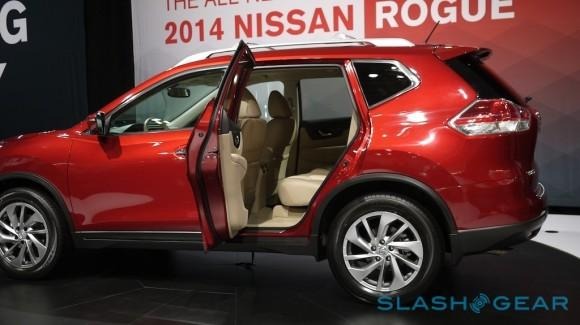
The 2013 Rogue was something of an ugly duckling from certain angles, with bulbous headlamps and some unflattering surface detailing. In comparison, the new Rogue is considerably more pleasing to the eye. The wheelbase has been lengthened, giving the SUV a more confident, settled stance, while the V-shaped chromed logo surround feeds back neatly into the hood lines, a more pronounced version of what Nissan has done with the Murano and Pathfinder grilles.
If there's an awkward angle, it might be the very rear, where the large trunk opening has some fussy details under the rear glass. It's a shame, because the rear three-quarters is great, the deep creases of the line that flows up from the headlamps, over the bulging front arches, then back up to a zig-zagged cut across the rear of the back doors, being echoed neatly in the up-kick of the C-pillar glass and the tail-lamps. That lighting gets new white LED running lamps on the front and hockey-stick red lamps at the back.
Nissan will offer three trim levels of 2014 Rogue – S, SV, and SL – along with FWD and AWD versions, and a handful of add-on packages. The S and SV can be optioned with the third-row seating "Family Package" for two more "occasional" seats at the very back that split 50/50 – they're fine for an impromptu extra child or two, but adults won't appreciate them – though not the top-spec SL, which Nissan says is because it would overlap too greatly with the Pathfinder.
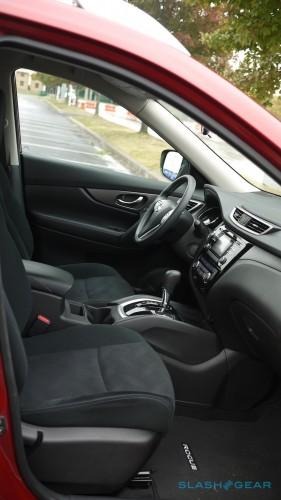
Standard kit includes either a 5-inch color dashboard display with CD, radio, USB, and Bluetooth connectivity, or the more advanced 7-inch display which adds in navigation and the NissanConnect system with app support. Right now, there's just a handful of apps like Pandora, Facebook, Google search, and iHeartRadio, and Nissan is tightly controlling what can be loaded so third-party developers can't add their own content.
That, the company told us, is because each app needs to be especially tweaked to suit the dash display, though the team is apparently working with other companies on new titles, and since it's mainly cloud-based – connecting via your smartphone's data, either via USB on an iPhone or Bluetooth on an Android device – Nissan can update the system remotely. As it stands, it's functional but not as advanced as other OEMs which support third-party titles, though we did get Pandora streaming with little effort through our Android device.
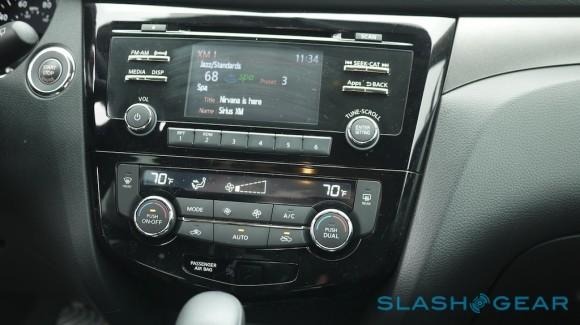
The Rogue S ($22,490 FWD/$23,840 AWD) gets 17-inch wheels and the 5-inch NissanConnect system, while the Rogue SV ($24,230 FWD/$25,580 AWD) steps up to 17-inch alloys and adds in SiriusXM satellite radio and two more speakers, plus dual-zone aircon. Finally, the Rogue SL ($28,070 FWD/$29,420 AWD) gets leather seats, Bose 9-speaker audio, the NissanConnect 7-inch system with navigation, 18-inch alloys, and heated seats which first start warming your lower back and thighs, since Nissan's research suggests you notice that first. Options include a moonroof ($1,320) which covers the front two rows in glass, and premium packages for the SV ($1,420) and SL ($1,990) with features like a power tailgate.
There's a surprising amount of soft-touch plastic given the standard of the segment – the entire top of the dashboard is soft to the touch, as is the armrest and door trim – while in the trunk there's Nissan's oddly named but very flexible Divide-'N-Hide cargo system. That consists of two sliding hard panels in the rear, that can be set up in different ways to create boxed-off areas, divide clean and wet objects, or make two levels of storage.
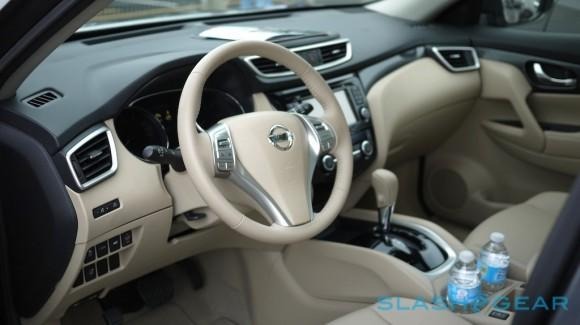
Nissan will offer only a single engine: the 2.5-liter DOHC 16-valve I-4 with a CVT transmission. It musters the same 170 HP and 175 lb-ft of torque as before, though the compression ratio has been increased, while the CVT gets the same "virtual" gears that Nissan has used to good reception in its more sports-focused models. Highway mileage is up 18-percent versus the old Rogue, rated 26/33/28 for city, highway, and combined respectively for the FWD, and 25/32/28 for the AWD.
Interestingly, Nissan will keep the existing 2013 Rogue – sales of which are in fact up 13.6-percent this year already – around alongside the 2014 redesign, as the Rogue Select. Expected to go on sale in January 2014, it'll be priced under $20k as a more affordable option.
The 2014 model gets the latest iteration of Nissan's Safety Shield, which uses a variety of cameras and sensors around the car for lane detection, forward collision warnings, blind-spot warnings, and moving object detection. There's also Nissan's great surround camera tech, which uses clever processing and lenses to show a virtual birds-eye view of the car at sub-5mph speeds, which is great for parking in tight spots.
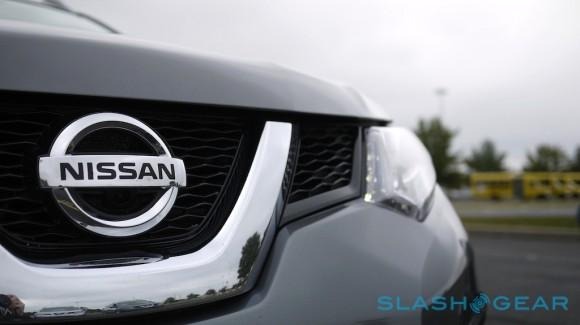
As for on the road performance, the Rogue is a big step up over the last-gen model. The engine feels more eager than before, and settles into a comfortable cruise in the 30-65mph bracket. It's generally smooth, too, though there's a noticeable uptick in noise when accelerating to pass traffic. On the plus side, the newly-stepped gearbox does a reasonable job of virtually mimicking traditional gears, though there's a return to CVT-style slurring when you get a bit more excitable.
Corners, meanwhile, use Nissan's new Active Trace Control, which adjusts turn-in using the inner or outer brakes so that it more closely matches your actual steering. It's a subtle effect – Nissan's target isn't sports drivers – but you can notice the difference when you turn it off through the 5-inch driver information screen in the center binnacle.
In all, though, it's a comfortable place to be, both in the front seats and the second row. In fact, it feels a lot like Nissan's larger Pathfinder, albeit with a somewhat more agile feel for the driver. It'll arrive in showrooms from November 13th.


